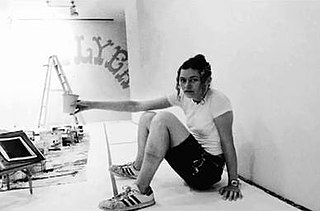A Quote by Haruki Murakami
But actually time isn't a straight line. It doesn't ave a shape. In all senses of the term, it doesn't have any form. But since we can't picture something without form in our minds, for the sake of convenience we understand it as a straight line. At this point, humans are the only ones who can make that sort of conceptual substitution.
Related Quotes
I do everything by hand... Even if I'm doing really big letters and I spend a lot of time going over the line and over the line and trying to make it straight, I'll never be able to make it straight. From a distance it might look straight, but when you get close up, you can always see the line waver. And I think that's where the beauty is.
I do not believe in eternal progress, that we are growing on ever and ever in a straight line. It is too nonsensical to believe. There is no motion in a straight line. A straight line infinitely projected becomes a circle. The force sent out will complete the circle and return to its starting place.
Concrete you can mold, you can press it into - after all, you haven't any straight lines in your body. Why should we have straight lines in our architecture? You'd be surprised when you go into a room that has no straight line - how marvelous it is that you can feel the walls talking back to you, as it were.
When you are in the line of your duty, it is like standing in front of a line of posts, and every post is in line. But step one step aside, and every post looks as though it were not quite in line. The farther you get away from that straight line, the more crooked the posts will appear. It is the straight and narrow path of duty that will lead you and me back to the presence of God.
Maybe time is nothing at all like a straight line. Perhaps it's shaped like a twisted doughnut. But for tens of thousands of years, people have probably been seeing time as a straight line that continues on forever. And that's the concept they based their actions on. And until now they haven't found anything inconvenient or contradictory about it. So as an experiential model, it's probably correct.

































